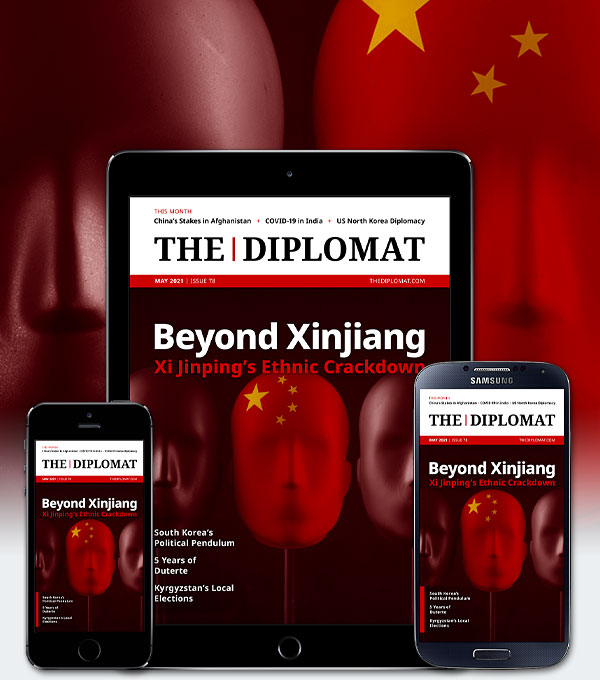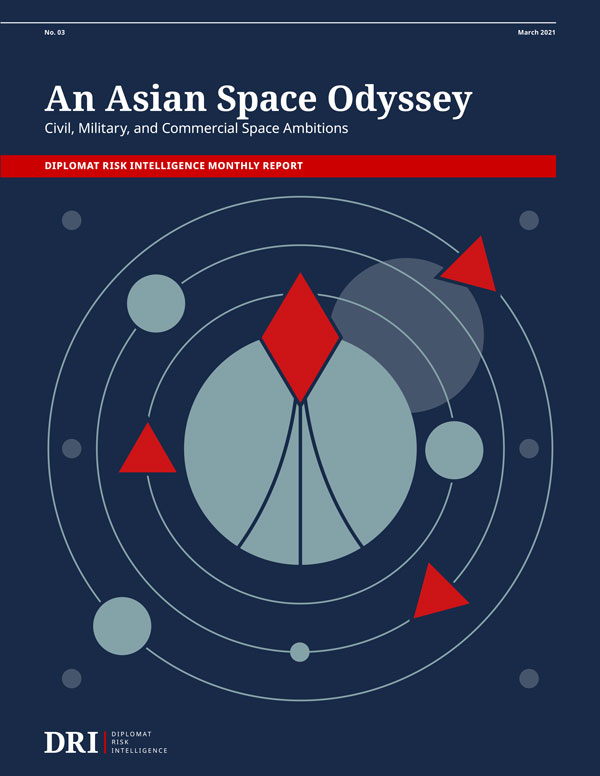| Welcome to the latest issue of Diplomat Brief. This week our top story looks at the plight of lawyers – and the law – in post-coup Myanmar. We also have an interview with Professor Artemy M. Kalinovsky of Temple University about the Soviet withdrawal from Afghanistan, with lessons for the U.S. in 2021. |
| Story of the week |  | SOCIETY The Danger of Defending the Defenseless in MyanmarWhat Happened: Since the February 1 coup, authorities in Myanmar have arrested over 4,100 mostly young protesters. Now the junta is also cracking down on the lawyers willing to offer legal aid to those detainees. Some lawyers have been forced into hiding to avoid outstanding arrest warrants; others are declining to take on politically risky cases. Our Focus: “Even before the coup, we have been working to ensure that the basic legal rights of every person are respected in case of an arrest or judicial accusation,” Miriam Chinnappa, who heads a large-scale criminal justice program in Myanmar, tells The Diplomat. “This has become even more challenging in recent times.” And lawyer May Zin Oo adds: “I felt crushed by the coup. Erasing the whole profession which I am dedicated to is very difficult for me.” What Comes Next: The crumbling of the rule of law in Myanmar is a microcosm of the larger backsliding from the deeply flawed, but real, progress the country had made toward democracy and justice in the past 10 years. With judges offering little opposition to the military’s legal pressure, Myanmar’s lawyers may be forced to choose between their profession and their personal safety. Read this story |
| Behind the News | INTERVIEW Artemy M. KalinovskyProfessor Artemy M. Kalinovsky, author of the 2011 book “A Long Goodbye: The Soviet Withdrawal from Afghanistan” on lessons from the Soviet departure: “The USSR’s objectives were to stabilize Afghanistan by putting in a more moderate leadership that would stop infighting in the [government] and stop alienating the country’s population... Ultimately, it was a fairly classic colonial counterinsurgency, and it didn’t work very well.” Read the interview |
| This Week in Asia | Northeast Asia Moon Jae-in Comes to WashingtonThis week, South Korean President Moon Jae-in will become the second world leader U.S. President Joe Biden hosts at the White House (following Japan’s Suga Yoshihide). In their summit on May 21, expect North Korea to top the agenda, but issues like Japan-South Korea relations won’t be far behind. The biggest elephant in the room: whether South Korea and the U.S. can find common ground on an approach to China. Find out more | South Asia Sri Lanka Battles Massive Pandemic Third WaveSince April, Sri Lanka has found itself staring at a severe third wave of COVID-19 infections that stands to disrupt the island nation's economy and society. Analysts maintain that the Sri Lankan government's policies – including an inadequate and ambiguous communication strategy – have contributed to the sharp uptick in new cases. In this, Sri Lanka finds itself in the company of neighbor India. Find out more | Southeast Asia Aung San Suu Kyi to Face Junta CourtMyanmar’s detained leader Aung San Suu Kyi will be tried in person at a special court in the capital Naypyidaw on May 24, after previous hearings were conducted via video link. The military regime has filed five legal cases against the former leader – including corruption, breaching COVID-19 regulations, and breaching COVID-19 regulations – in a bid to legalize her removal from power on February 1. Find out more | Central Asia Kyrgyzstan Seizes Control of KumtorCanadian mining company Centerra Gold threatened last week to take Kyrgyzstan to international arbitration if a new law allowing the state to seize control of the long-controversial Kumtor gold mine was implemented. Over the weekend, Kyrgyz authorities moved to take over the mine and Centerra, in turn, warned it “can no longer ensure the safety of the mine’s employees or operations.” Find out more |
| Visualizing APAC |  | Photo by Franz J. Marty, May 14, 2021 Afghans on a chair swing ride in Sharana, Paktika, on the second day of Eid al-Fitr. Afghans scrambled to make the most of a rare three-day ceasefire between the Taliban and Afghan government. See the full picture |
| Word of the Week | SOCIETY 华人Huaren, the Mandarin term used to refer to ethnic Chinese who are citizens of other countries – especially in Southeast Asia. Find out more |
|  |





